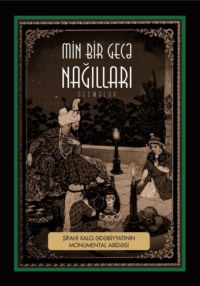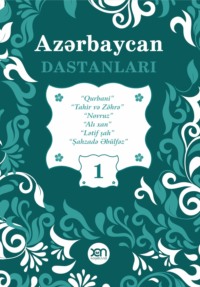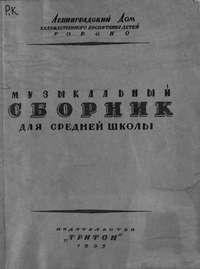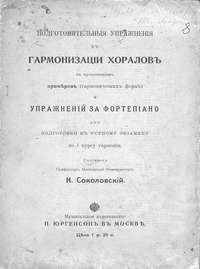 полная версия
полная версияA plain and literal translation of the Arabian nights entertainments, now entituled The Book of the Thousand Nights and a Night, Volume 4 (of 17)
When Ni’amah read these verses, his eyes ran over with tears and the old woman said to him, “What maketh thee to weep, O my son? Allah never cause thine eye to shed tears!” Cried the Persian, “O my lady, how should my son not weep, seeing that this is his slave-girl and he her lord, Ni’amah son of al-Rabi’a of Cufa; and her health dependeth on her seeing him, for naught aileth her but loving him.” – And Shahrazad perceived the dawn of day and ceased to say her permitted say.
Now when it was the Two Hundred and Forty-third Night,She said, It hath reached me, O auspicious King, that the Persian cried out to the old woman, “How shall my son not weep, seeing that this is his slave-girl and he her lord, Ni’amah son of al-Rabi’a of Cufa; and the health of this damsel dependeth on her seeing him and naught aileth her but loving him. So, do thou, O my lady, take these thousand dinars to thyself and thou shalt have of me yet more than this; only look on us with eyes of ruth; for we know not how to bring this affair to a happy end save through thee.” Then she said to Ni’amah, “Say, art thou indeed her lord?” He replied, “Yes,” and she rejoined, “Thou sayest sooth; for she ceaseth not continually to name thee.” Then he told her all that had passed from first to last, and she said, “O youth, thou shalt owe thy reunion with her to none but myself.” So she mounted and, at once returning to Naomi, looked in her face and laughed saying, “It is just, O my daughter, that thou weep and fall sick for thy separation from thy master, Ni’amah son of Al-Rabi’a of Cufa.” Quoth Naomi, “Verily, the veil hath been withdrawn for thee and the truth revealed to thee.” Rejoined the old woman, “Be of good cheer and take heart, for I will assuredly bring you together, though it cost me my life.” Then she returned to Ni’amah and said to him, “I went to thy slave-girl and conversed with her, and I find that she longeth for thee yet more than thou for her; for although the Commander of the Faithful is minded to become intimate with her, she refuseth herself to him. But if thou be stout of purpose and firm of heart, I will bring you together and venture my life for you, and play some trick and make shift to carry thee into the Caliph’s palace, where thou shalt meet her, for she cannot come forth.” And Ni’amah answered, “Allah requite thee with good!” Then she took leave of him and went back to Naomi and said, “Thy lord is indeed dying of love for thee and would fain see thee and foregather with thee. What sayest thou?” Naomi replied, “And I too am longing for his sight and dying for his love.” Whereupon the old woman took a parcel of women’s clothes and ornaments and, repairing to Ni’amah, said to him, “Come with me into some place apart.” So he brought her into the room behind the shop where she stained his hands and decked his wrists and plaited his hair, after which she clad him in a slave-girl’s habit and adorned him after the fairest fashion of woman’s adornment, till he was as one of the Houris of the Garden of Heaven, and when she saw him thus she exclaimed, “Blessed be Allah, best of Creators! By Allah, thou art handsomer than the damsel.17 Now, walk with thy left shoulder forwards and thy right well behind, and sway thy hips from side to side.”18 So he walked before her, as she bade him; and, when she saw he had caught the trick of woman’s gait, she said to him, “Expect me to-morrow night, and Allah willing, I will take and carry thee to the palace. But when thou seest the Chamberlains and the Eunuchs be bold, and bow thy head and speak not with any, for I will prevent their speech; and with Allah is success!” Accordingly, when the morning dawned, she returned and, carrying him to the palace, entered before him and he after her step by step. The Chamberlain would have stopped his entering, but the old woman said to him, “O most ill-omened of slaves, this is the handmaid of Naomi, the Caliph’s favourite. How durst thou stay her when she would enter?” Then said she, “Come in, O damsel!”; and the old woman went in and they ceased not faring on, till they drew near the door leading to the inner piazza of the palace, when she said to him, “O Ni’amah, hearten thyself and take courage and enter and turn to the left: then count five doors and pass through the sixth, for it is that of the place prepared for thee. Fear nothing, and if any speak to thee, answer not neither stop.” Then she went up with him to the door, and the Chamberlain there on guard accosted her, saying, “What damsel is this?” – And Shahrazad perceived the dawn of day and ceased saying her permitted say.
Now when it was the Two Hundred and Forty-fourth Night,She said, It hath reached me, O auspicious King, that when the Chamberlain accosted the old woman, saying, “What damsel is this?”; quoth the ancient dame, “Our lady hath a mind to buy her;” and he rejoined, “None may enter save by leave of the Commander of the Faithful; so do thou go back with her. I cannot let her pass for thus am I commanded.” Replied the old woman, “O Chief Chamberlain, use thy reason. Thou knowest that Naomi, the Caliph’s slave-girl, of whom he is enamoured, is but now restored to health and the Commander of the Faithful hardly yet crediteth her recovery. She is minded to buy this handmaid; so oppose thou not her entrance, lest haply it come to Naomi’s knowledge and she be wroth with thee and suffer a relapse and this cause thy head to be cut off.” Then said she to Ni’amah, “Enter, O damsel; pay no heed to what he saith and tell not the Queen-consort that her Chamberlain opposed thine entrance.” So Ni’amah bowed his head and entered the palace, and would have turned to the left, but mistook the direction and walked to his right; and, meaning to count five doors and enter the sixth, he counted six and entering the seventh, found himself in a place whose floor was carpeted with brocade and whose walls were hung with curtains of gold-embroidered silk. And therein stood censers of aloes-wood and ambergris and strong-scented musk, and at the upper end was a couch bespread with cloth of gold on which he seated himself, marvelling at the magnificence he saw and knowing not what was written for him in the Secret Purpose. As he sat musing on his case, the Caliph’s sister, followed by her handmaid, came in upon him; and, seeing the youth seated there took him for a slave-girl and accosted him and said, “Who art thou O damsel? and what is thy case and who brought thee hither?” He made no reply, and was silent, when she continued, “O damsel! if thou be one of my brother’s concubines and he be wroth with thee, I will intercede with him for thee and get thee grace.” But he answered her not a word; so she said to her slave-girl, “Stand at the door and let none enter.” Then she went up to Ni’amah and looking at him was amazed at his beauty and said to him, “O lady, tell me who thou art and what is thy name and how thou camest here; for I have never seen thee in our palace.” Still he answered not, whereat she was angered and, putting her hand to his bosom, found no breasts and would have unveiled him, that she might know who he was; but he said to her, “O my lady, I am thy slave and I cast myself on thy protection: do thou protect me.” She said, “No harm shall come to thee, but tell me who thou art and who brought thee into this my apartment.” Answered he, “O Princess, I am known as Ni’amah bin al-Rabi’a of Cufa and I have ventured my life for the sake of my slave-girl Naomi, whom Al-Hajjaj took by sleight and sent hither.” Said she, “Fear not: no harm shall befal thee;” then, calling her maid, she said to her, “Go to Naomi’s chamber and send her to me.” Meanwhile the old woman went to Naomi’s bedroom and said to her, “Hath thy lord come to thee?” “No, by Allah!” answered Naomi, and the other said, “Belike he hath gone astray and entered some chamber other than thine and lost himself.” So Naomi cried, “There is no Majesty and there is no Might save in Allah, the Glorious, the Great! Our last hour is come and we are all lost.” And while they were sitting and sadly enough pondering their case, in came the Princess’s handmaid and saluting Naomi said to her, “My lady biddeth thee to her banquet.” “I hear and I obey,” answered the damsel and the old woman said, “Belike thy lord is with the Caliph’s sister and the veil of secrecy hath been rent.” So Naomi at once sprang up and betook herself to the Princess, who said to her, “Here is thy lord sitting with me; it seemeth he hath mistaken the place; but, please Allah, neither thou nor he has any cause for fear.” When Naomi heard these words, she took heart of grace and went up to Ni’amah; and her lord when he saw her – And Shahrazad perceived the dawn of day and ceased to say her permitted say.
Now when it was the Two Hundred and Forty-fifth Night,She said, It hath reached me, O auspicious King, that when Ni’amah saw his handmaid Naomi, he rose to meet her and strained her to his bosom and both fell to the ground fainting. As soon as they came to themselves, the Caliph’s sister said to them, “Sit ye down and take we counsel for your deliverance from this your strait.” And they answered, “O our lady, we hear and obey; it is thine to command.” Quoth she, “By Allah, no harm shall befal you from us!” Then she bade her handmaids bring meat and drink which was done, and they sat down and ate till they had enough, after which they sat drinking. Then the cup went round amongst them and their cares ceased from them; but Ni’amah said, “Would I knew how this will end.” The Princess asked, “O Ni’amah, dost thou love thy slave Naomi?”; and he answered, “Of a truth it is my passion for her which hath brought me to this state of peril for my life.” Then said she to the damsel, “O Naomi, dost thou love thy lord Ni’amah?”; and she replied, “O my lady, it is the love of him which hath wasted my body and brought me to evil case.” Rejoined the Princess, “By Allah, since ye love each other thus, may he not be who would part you! Be of good cheer and keep your eyes cool and clear.” At this they both rejoiced and Naomi called for a lute and, when they brought it, she took it and tuned it and played a lively measure which enchanted the hearers, and after the prelude sang these couplets: —
When the slanderers cared but to part us twain, ✿ We owed no blood-debt could raise their ire;And they poured in our ears all the din of war, ✿ And aid failed and friends, when my want was dire:I fought them hard with mine eyes and tears; ✿ With breath and sword, with the stream and fire!Then Naomi gave the lute to her master, Ni’amah, saying, “Sing thou to us some verse.” So he took it and playing a lively measure, intoned these couplets: —
Full Moon if unfreckled would favour thee, ✿ And Sun uneclipsed would reflect thy blee:I wonder (but love is of wonders full ✿ And ardour and passion and ecstasy)How short the way to my love I fare, ✿ Which, from her faring, so long I see.Now when he had made an end of his song, Naomi filled the cup and gave it to him, and he took it and drank it off; then she filled again and gave the cup to the Caliph’s sister who also emptied it; after which the Princess in her turn took the lute and tightened the strings and tuned it and sang these two couplets: —
Grief, cark and care in my heart reside, ✿ And the fires of love in my breast abide;My wasted form to all eyes shows clear; ✿ For Desire my body hath mortified.Then she filled the cup and gave it to Naomi, who drank it off and taking the lute, sang these two couplets: —
O to whom I gave soul which thou torturest, ✿ And in vain I’d recover from fair Unfaith,Do grant thy favours my care to cure ✿ Ere I die, for this be my latest breath.And they ceased not to sing verses and drink to the sweet sound of the strings, full of mirth and merriment and joy and jollity till behold, in came the Commander of the Faithful. Now when they saw him, they rose and kissed the ground before him; and he, seeing Naomi with the lute in her hand, said to her, “O Naomi, praised be Allah who hath done away from thee sickness and suffering!” Then he looked at Ni’amah (who was still disguised as a woman), and said to the Princess, “O my sister, what damsel is this by Naomi’s side?” She replied, “O Commander of the Faithful, thou hast here a handmaid, one of thy concubines and the bosom friend of Naomi who will neither eat nor drink without her.” And she repeated the words of the poet: —
Two contraries, and both concur in opposite charms, ✿ And charms so contraried by contrast lovelier show.Quoth the Caliph, “By Allah Omnipotent, verily she is as handsome as Naomi, and to-morrow I will appoint her a separate chamber beside that of her friend and send her furniture and stuffs and all that befitteth her, in honour of Naomi.” Then the Princess called for food and set it before her brother, who ate and made himself at home in their place and company. Then filling a cup he signed to Naomi to sing; so she took the lute, after draining two of them and sang these two couplets: —
Since my toper-friend in my hand hath given ✿ Three cups that brim and bubble, e’er sinceI’ve trailed my skirts throughout night for pride ✿ As tho’, Prince of the Faithful, I were thy Prince!The Prince of True Believers was delighted and filling another cup, gave it to Naomi and bade her sing again; so after draining the cup and sweeping the strings, she sang as follows: —
O most noble of men in this time and stound, ✿ Of whom none may boast he is equal found!O matchless in greatness of soul and gifts, ✿ O thou Chief, O thou King amongst all renowned:Lord, who dealest large boons to the Lords of Earth, ✿ Whom thou vexest not nor dost hold them bound;The Lord preserve thee, and spoil thy foes, ✿ And ne’er cease thy lot with good Fortune crowned!Now when the Caliph heard these couplets, he exclaimed, “By Allah, good! By Allah, excellent! Verily the Lord hath been copious19 to thee, O Naomi! How clever is thy tongue and how clear is thy speech!” And they ceased not their mirth and good cheer till midnight, when the Caliph’s sister said to him, “Give ear, O Commander of the Faithful to a tale I have read in books of a certain man of rank.” “And what is this tale?” quoth he. Quoth she “Know, O Prince of the Faithful that there lived once in the city of Cufa a youth called Ni’amah, son of Al-Rabi’a, and he had a slave-girl whom he loved and who loved him. They had been reared in one bed; but when they grew up and mutual love gat hold of them, Fortune smote them with her calamities and Time, the tyrant, brought upon them his adversity and decreed separation unto them. Thereupon designing and slanderous folk enticed her by sleight forth of his house and, stealing her away from his home, sold her to one of the Kings for ten thousand dinars. Now the girl loved her lord even as he loved her; so he left kith and kin and house and home and the gifts of fortune, and set out to search for her and when she was found he devised means to gain access to her” – And Shahrazad perceived the dawn of day and ceased to say her permitted say.
Now when it was the Two Hundred and Forty-sixth Night,She said, It hath reached me, O auspicious King, that the Caliph’s sister said, “And Ni’amah ceased not absenting himself from his kith and kin and patrial stead, that he might gain access to his handmaid, and he incurred every peril and lavished his life till he gained access to her, and her name was Naomi, like this slave-girl. But the interview was short; they had not been long in company when in came the King, who had bought her of her kidnapper, and hastily ordered them to be slain, without doing justice by his own soul and delaying to enquire into the matter before the command was carried out. Now what sayest thou, O Commander of the Faithful, of this King’s wrongous conduct?” Answered the Caliph; “This was indeed a strange thing: it behoved that King to pardon when he had the power to punish; and he ought to have regarded three things in their favour. The first was that they loved each other; the second that they were in his house and in his grasp; and the third that it befitteth a King to be deliberate in judging and ordering between folk, and how much more so in cases where he himself is concerned! Wherefore this King thus did an unkingly deed.” Then said his sister, “O my brother, by the King of the heavens and the earth, I conjure thee, bid Naomi sing and hearken to that she shall sing!” So he said, “O Naomi, sing to me;” whereupon she played a lively measure and sang these couplets: —
Beguiled us Fortune who her guile displays, ✿ Smiting the heart, bequeathing thoughts that craze,And parting lovers whom she made to meet, ✿ Till tears in torrent either cheek displays:They were and I was and my life was glad, ✿ While Fortune often joyed to join our ways;I will pour tear-flood, will rain gouts of blood, ✿ Thy loss bemoaning through the nights and days!Now when the Commander of the Faithful heard this verse, he was moved to great delight and his sister said to him, “O my brother, whoso decideth in aught against himself, him it behoveth to abide by it and do according to his word; and thou hast judged against thyself by this judgement.” Then said she, “O Ni’amah, stand up and do thou likewise up stand, O Naomi!” So they stood up and she continued, “O Prince of True Believers, she who standeth before thee is Naomi the stolen, whom Al-Hajjaj bin Yusuf al-Sakafi kidnapped and sent to thee, falsely pretending in his letter to thee that he had bought her for ten thousand gold pieces. And this other who standeth before thee is her lord, Ni’amah, son of Al-Rabi’a; and I beseech thee, by the honour of thy pious forebears and by Hamzah and Ukayl and Abbas,20 to pardon them both and overlook their offence and bestow them one on the other, that thou mayst win rich reward in the next world of thy just dealing with them; for they are under thy hand and verily they have eaten of thy meat and drunken of thy drink; and behold, I make intercession for them and beg of thee the boon of their blood.” Thereupon quoth the Caliph, “Thou speakest sooth: I did indeed give judgement as thou sayst, and I am not one to pass sentence and to revoke it.” Then said he, “O Naomi, say, be this thy lord?” And she answered, “Even so, O Commander of the Faithful.” Then quoth he, “No harm shall befal you, I give you each to other;” adding to the young man, “O Ni’amah, who told thee where she was and taught thee how to get at this place?” He replied, “O Commander of the Faithful, hearken to my tale and give ear to my history; for, by the virtue of thy pious forefathers, I will hide nothing from thee!” And he told him all that had passed between himself and the Persian physician and the old nurse, and how she had brought him into the palace and he had mistaken the doors; whereat the Caliph wondered with exceeding wonder and said, “Fetch me the Persian.” So they brought him into the presence and he was made one of his chief officers. Moreover the King bestowed on him robes of honour and ordered him a handsome present, saying, “When a man hath shown like this man such artful management, it behoveth us to make him one of our chief officers.” The Caliph also loaded Ni’amah and Naomi with gifts and honours and rewarded the old nurse; and they abode with him seven days in joy and content and all delight of life, when Ni’amah craved leave to return to Cufa with his slave-girl. The Caliph gave them permission and they departed and arrived in due course at Cufa, where Ni’amah was restored to his father and mother, and they abode in all the joys and jollities of life, till there came to them the Destroyer of delights and the Sunderer of societies. Now when Amjad and As’ad heard from Bahram this story, they marvelled with extreme marvel and said, “By Allah, this is indeed a rare tale!” – And Shahrazad perceived the dawn of day and ceased to say her permitted say.
Now when it was the Two Hundred and Forty-seventh Night,She said, It hath reached me, O auspicious King, that when Amjad and As’ad heard this story from Bahram the Magian who had become a Moslem, they marvelled with extreme marvel and thus passed that night; and when the next morning dawned, they mounted and riding to the palace, sought an audience of the King who granted it and received them with high honour. Now as they were sitting together talking, of a sudden they heard the townsfolk crying aloud and shouting to one another and calling for help; and the Chamberlain came in to the King and said to him, “Some King hath encamped before the city, he and his host, with arms and weapons displayed, and we know not their object and aim.” The King took counsel with his Wazir Amjad and his brother As’ad; and Amjad said, “I will go out to him and learn the cause of his coming.” So he took horse and, riding forth from the city, repaired to the stranger’s camp, where he found the King and with him a mighty many and mounted Mamelukes. When the guards saw him, they knew him for an envoy from the King of the city; so they took him and brought him before their Sultan. Then Amjad kissed the ground before him; but lo! the King was a Queen, who was veiled with a mouth-veil, and she said to Amjad, “Know that I have no design on this your city and that I am come hither only in quest of a beardless slave of mine, whom if I find with you, I will do you no harm; but if I find him not, then shall there befal sore onslaught between me and you.” Asked Amjad, “O Queen, what like is thy slave and what is his story and what may be his name?” Said she, “His name is As’ad and my name is Marjanah, and this slave came to my town in company of Bahram, a Magian, who refused to sell him to me; so I took him by force, but his master fell upon him by night and bore him away by stealth and he is of such and such a favour.” When Amjad heard that, he knew it was indeed his brother As’ad whom she sought and said to her, “O Queen of the age, Alhamdolillah, praised be Allah, who hath brought us relief! Verily this slave whom thou seekest is my brother.” Then he told her their story and all that had befallen them in the land of exile, and acquainted her with the cause of their departure from the Islands of Ebony, whereat she marvelled and rejoiced to have found As’ad. So she bestowed a dress of honour upon Amjad, and he returned forthright to the King and told him what had passed, at which they all rejoiced and the King went forth with Amjad and As’ad to meet Queen Marjanah. When they were admitted to her presence and sat down to converse with her and were thus pleasantly engaged, behold, a dust-cloud rose and flew and grew, till it walled the view. And after a while it lifted and showed beneath it an army dight for victory, in numbers like the swelling sea, armed and armoured cap-à-pie who, making for the city, encompassed it around as the ring encompasseth the little finger;21 and a bared brand was in every hand. When Amjad and As’ad saw this, they exclaimed, “Verily to Allah we belong and to Him we shall return! What is this mighty host? Doubtless, these are enemies, and except we agree with this Queen Marjanah to fight them, they will take the town from us and slay us. There is no resource for us but to go out to them and see who they are.” So Amjad arose and took horse and passed through the city-gate to Queen Marjanah’s camp; but when he reached the approaching army he found it to be that of his grandsire, King Ghayur, father of his mother Queen Budur. – And Shahrazad perceived the dawn of day and ceased saying her permitted say.
Now when it was the Two Hundred and Forty-eighth Night,She said, It hath reached me, O auspicious King, that when Amjad reached the approaching host, he found it to be that of his grandsire, Lord of the Isles and the Seas and the Seven Castles; and when he went into the presence, he kissed the ground between his hands and delivered to him the message. Quoth the King, “My name is King Ghayur and I come wayfaring in quest of my daughter Budur whom fortune hath taken from me; for she left me and returned not to me, nor have I heard any tidings of her or of her husband Kamar al-Zaman. Have ye any news of them?” When Amjad heard this, he hung his head towards the ground for a while in thought till he felt assured that this King was none other than his grandfather, his mother’s father; whereupon he raised his head and, kissing ground before him, told him that he was the son of his daughter Budur; on hearing which Ghayur threw himself upon him and they both fell a-weeping.22 Then said Ghayur, “Praised be Allah, O my son, for safety, since I have foregathered with thee,” and Amjad told him that his daughter Budur was safe and sound, and her husband Kamar al-Zaman likewise, and acquainted him that both abode in a city called the City of Ebony. Moreover, he related to him how his father, being wroth with him and his brother, had commanded that both be put to death, but that his treasurer had taken pity on them and let them go with their lives. Quoth King Ghayur, “I will go back with thee and thy brother to your father and make your peace with him.” So Amjad kissed the ground before him in huge delight and the King bestowed a dress of honour upon him, after which he returned, smiling, to the King of the City of the Magians and told him what he had learnt from King Ghayur, whereat he wondered with exceeding wonder. Then he despatched guest-gifts of sheep and horses and camels and forage and so forth to King Ghayur, and did the like by Queen Marjanah; and both of them told her what chanced; whereupon quoth she, “I too will accompany you with my troops and will do my endeavour to make this peace.” Meanwhile behold, there arose another dust-cloud and flew and grew till it walled the view and blackened the day’s bright hue; and under it they heard shouts and cries and neighing of steeds and beheld sword glance and the glint of levelled lance. When this new host drew near the city and saw the two other armies, they beat their drums and the King of the Magians exclaimed, “This is indeed naught but a blessed day. Praised be Allah who hath made us of accord with these two armies; and if it be His will, He shall give us peace with yon other as well.” Then said he to Amjad and As’ad, “Fare forth and fetch us news of these troops, for they are a mighty host, never saw I a mightier.” So they opened the city gates, which the King had shut for fear of the beleaguering armies, and Amjad and As’ad went forth and, coming to the new host, found that it was indeed a mighty many. But as soon as they came to it behold, they knew that it was the army of the King of the Ebony Islands, wherein was their father, King Kamar al-Zaman in person. Now when they looked upon him, they kissed ground and wept; but, when he beheld them, he threw himself upon them weeping, with sore weeping, and strained them to his breast for a full hour. Then he excused himself to them and told them what desolation he had suffered for their loss and exile; and they acquainted him with King Ghayur’s arrival, whereupon he mounted with his chief officers and taking with him his two sons, proceeded to that King’s camp. As they drew near, one of the Princes rode forward and informed King Ghayur of Kamar al-Zaman’s coming, whereupon he came out to meet him and they joined company, marvelling at these things and how they had chanced to foregather in that place. Then the townsfolk made them banquets of all manner meats and sweetmeats and presented to them horses and camels and fodder and other guest-gifts and all that the troops needed. And while this was doing, behold, yet another cloud of dust arose and flew till it walled the view, whilst earth trembled with the tramp of steed and tabors sounded like stormy winds. After a while, the dust lifted and discovered an army clad in coats of mail and armed cap-à-pie; but all were in black garb, and in their midst rode a very old man whose beard flowed down over his breast and he also was clad in black. When the King in the city and the city-folk saw this great host, he said to the other Kings, “Praised be Allah by whose omnipotent command ye are met here, all in one day, and have proved all known one to the other! But what vast and victorious army is this which hemmeth in the whole land like a wall?” They answered, “Have no fear of them; we are three Kings, each with a great army, and if they be enemies, we will join thee in doing battle with them, were they three times as many as they now are.” Meanwhile, up came an envoy from the approaching host, making for the city. So they brought him before Kamar al-Zaman, King Ghayur, Queen Marjanah and the King of the city; and he kissed the ground and said, “My liege lord cometh from Persia-land; for many years ago he lost his son and he is seeking him in all countries. If he find him with you, well and good; but if he find him not, there will be war between him and you and he will waste your city.” Rejoined Kamar al-Zaman, “It shall not come to that; but how is thy master called in Aiam land?” Answered the envoy, “He is called King Shahriman, lord of the Khalidan Islands; and he hath levied these troops in the lands traversed by him, whilst seeking his son.” Now when Kamar al-Zaman heard these words, he cried out with a great cry and fell down in a fainting fit which lasted a long while; and anon coming to himself he wept bitter tears and said to Amjad and As’ad, “Go ye, O my sons, with the herald, salute your grandfather and my father, King Shahriman, and give him glad tidings of me, for he mourneth my loss and even to the present time he weareth black raiment for my sake.” Then he told the other Kings all that had befallen him in the days of his youth, at which they wondered and, going down with him from the city, repaired to his father, whom he saluted, and they embraced and fell to the ground senseless for excess of joy. And when they revived after a while, Kamar al-Zaman acquainted his father with all his adventures and the other Kings saluted Shahriman. Then, after having married Marjanah to As’ad, they sent her back to her kingdom, charging her not to cease correspondence with them; so she took leave and went her way. Moreover they married Amjad to Bostan, Bahram’s daughter, and they all set out for the City of Ebony. And when they arrived there, Kamar al-Zaman went in to his father-in-law, King Armanus, and told him all that had befallen him and how he had found his sons; whereat Armanus rejoiced and gave him joy of his safe return. Then King Ghayur went in to his daughter, Queen Budur,23 and saluted her and quenched his longing for her company, and they all abode a full month’s space in the City of Ebony; after which the King and his daughter returned to their own country. – And Shahrazad perceived the dawn of day and ceased to say her permitted say.









